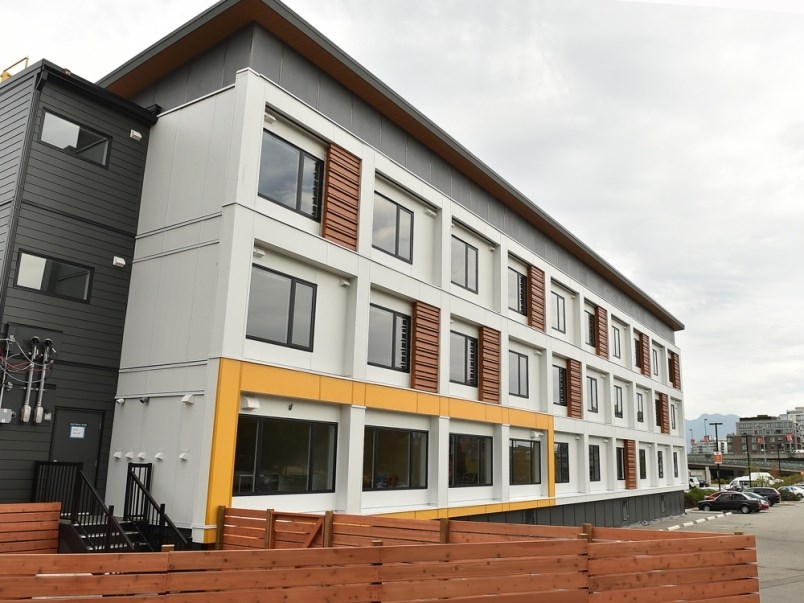OneCity Coun. Christine Boyle wants council consider the possibility of allowing temporary modular housing for the homeless as an option in single-family and duplex zones.
Boyle for councilâs July 23 agenda called âEvery Neighbourhood for Everyone.â
If approved, it would see staff explore and report back on opportunities to deliver modular housing on RS- and RT-zoned parcels on private or city-owned land that could accommodate the use.
If opportunities exist, the report would include policy tools that would be required to make it possible, including changes to the Â鶹´«Ã½Ó³»Charter and/or new rezoning policies.
Currently, modular housing is allowed as a temporary use in CD-1 â comprehensive development district â zones.
Boyleâs motion also proposes staff continue to explore, through the city-wide plan and through implementation of other city housing strategies, additional possibilities for creating homes for low and moderate income families and individuals in all city neighbourhoods.
Boyle describes homelessness in Â鶹´«Ã½Ó³»as a âhumanitarian crisisâ that needs to be addressed. Her motion cites Vancouverâs 2019 homeless count, which revealed 2,223 people were without homes in the city âsince staff started tracking the problem.
It also points out that homelessness disproportionately affects marginalized populations and that people experiencing homelessness come from every neighbourhood of the city, so housing for homeless and low-income residents should be available in every neighbourhood.
âMy goal is to increase the amount of land that we can consider as possibilities for this type of housing so that we can increase the number of units and get people inside homes,â she told the Courier July 22.
Sheâs not sure how much RS or RT-zoned land is suited for temporary modular housing based on size and issues such as access to transit, which is why the first part of her motion asks staff to do a preliminary scan and come back to council with information and recommendations on whether or not itâs a change worth making based on how much land is available.
If the proposal moves forward, it would to public hearing before it was adopted, and every site would still involve community consultation.
âThere are lots of chances still for the public to be part of this conversation but the initial scan is the next step to see where there are sites that would work and be worth considering,â Boyle said.
RS- and RT-zoned land is some of the least expensive land per square foot in the city, according to Boyle, so she argues it makes sense for council to look at that land as it struggles to âcrack the nut on affordability.â
More than 600 temporary modular housing units have already been built in Vancouver, and council is to double that figure.
Boyle maintains both modular housing and low-cost permanent housing are necessary and that studies have found housing people costs less than homelessness.
âThere are lots of reasons, I think, why we need a lot more temporary modular housing units just to get people inside, and we need permanent affordable and social housing as well. Itâs important we keep connecting those conversations and that we not just advocate for the temporary solutions but keeping the bigger goal in mind, which is permanent affordable housing across the city â in all neighbourhoods of the city,â she said.
The public, Boyle added, have witnessed council struggle to get âdeep affordabilityâ within existing policies.
âPeople across the city feel compassion about homelessness. There was a lot of despair about the homeless count going up again this year, so I think people are open to looking at solutions,â she said, adding opposition to temporary modular housing has largely died down in areas where it's already gone in, and public safety stats have shown there wasnât an increase in crime or police calls to those sites.
"Where thereâs been some neighbourhood concern, it really has eased as people got a sense of what the actual results would be so I continue to be hopeful that that will be the reaction in other neighbourhoods.â
@naoibh



